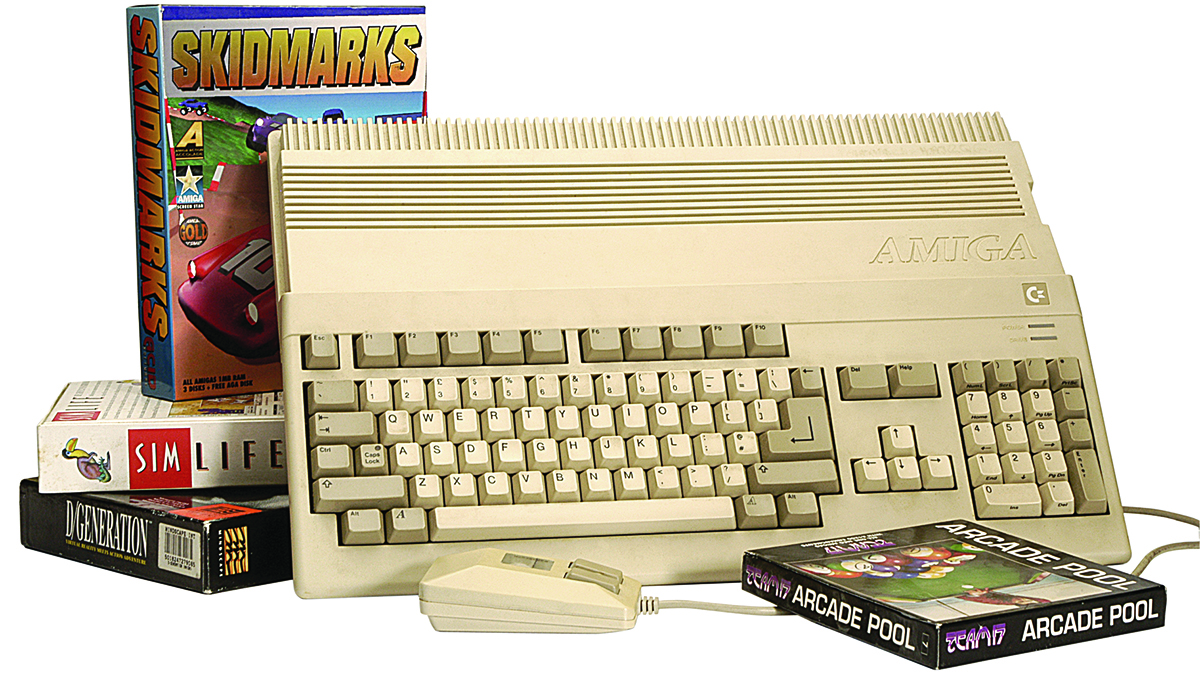Calvin Harris says that making music using just an Amiga 500+ and a simple tracker taught him a valuable lesson: “I made my first album on that - I used it long after I should have stopped using it”
“I loved it. It was like playing a computer game but actually you were making something at the end of it and it was kind of creative”

Want all the hottest music and gear news, reviews, deals, features and more, direct to your inbox? Sign up here.
You are now subscribed
Your newsletter sign-up was successful
As well as discussing the music he grew up listening to, Calvin Harris has also been telling BBC Radio 2’s Vernon Kay about his early forays into music production.
It turns out that Harris’s tune-crafting career began when his elder brother left behind an Amiga 500+ computer when he went off to university. As well as using it to play games on, young Calvin also discovered a piece of tracker software.
“I made my first album on that actually,” he reveals. I used it long after I should have stopped using it.”
Describing the tracker that he used, believed to be OctaMED, Harris explains: “You’d have four channels running vertically, and you could input samples on those vertical channels. Then you’d hit the spacebar and it would start playing, and as the line crossed these little inputs it’d be like ‘kick, kick, tss, tss’ and you could just add the beat that way.
“I loved it. It was like playing a computer game but actually you were making something at the end of it and it was kind of creative.”
Harris says that his brother - who he says actually wrote the manual for OctaMED - showed him how he could sample directly into the Amiga from CD, and that using such a limited platform taught him a valuable production lesson.
“It taught me to be very selective about what I put in my own tunes, simply because I only had five channels,” he recalls. “So everything that was there had to be there for a reason.
Want all the hottest music and gear news, reviews, deals, features and more, direct to your inbox? Sign up here.
“There were some songs that I couldn’t put a crash cymbal in and a chorus vocal at the same time because it would take up too much memory, so I had to decide if I would put in this riff or would I put in this hi-hat. You had a certain amount of sample time, so that taught me to use every channel effectively.”
Released in 2007, Harris’s debut album, I Created Disco, was made using just the Amiga, OctaMED, a “little sampler”, one keyboard and his own vocals, but that would prove to be this primitive’s setup swansong.
“After the first album came out the computer died,” Harris reveals.” And I think it was telling me, it’s time to move on mate. I would have used it for the second album - it would have been awful - but I needed to move on, get with the times somewhat.”
Reflecting on how computer music technology has evolved, and what today’s budding producers have access to on their laptops, Harris has mixed feelings.
“You can do anything now, and all the problems are so advanced, you can literally go from doing nothing to an orchestral piece with 200 tracks, which I don’t know is always the best route. I think it’s a good job to impose your own restrictions sometimes and work to that.”
You can listen to the full interview on BBC Sounds.



I’m the Deputy Editor of MusicRadar, having worked on the site since its launch in 2007. I previously spent eight years working on our sister magazine, Computer Music. I’ve been playing the piano, gigging in bands and failing to finish tracks at home for more than 30 years, 24 of which I’ve also spent writing about music and the ever-changing technology used to make it.